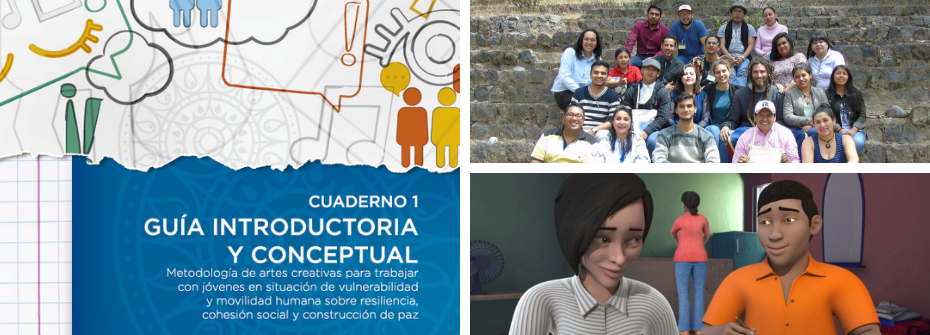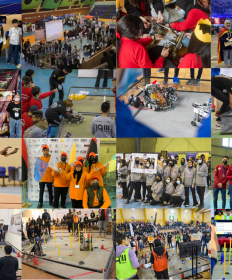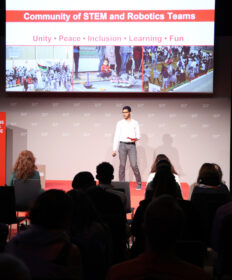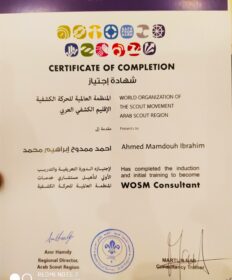Fundacion Futuro Latinoamericano (FFLA) facilitated a Training-For-Trainers process in the Creative Arts Methodology to work with youth in contexts of human mobility. After the successful launch of its publication in last October, Catholic Relief Services (CRS) renew its partnership with FFLA to train officers from 10 youth-led organizations and institutions working with youth in the Northern Border Zone of Ecuador on workshops that employ two animated videos which narratives and voices belong to young refugees served by our partner Mision Scalabriniana.
As a previous step to receiving a certificate, participants are currently delivering workshops on resilience and social cohesion among their communities. The process includes a research component to gather evidence and reflect the changed produced by the workshops. By setting a community of practice, participants will be able to share their experiences while using the methodology.
According to its authors, Liz Pereira and Gonzalo Caceres, “the human mobility context that the region is currently facing demands a set of actions from civil society organizations and the public sector that recognize youth as capable of dealing and adapting to the changes produced by their migration.”
Young people are key in fostering migrant integration in the receiving communities. To secure an integral approach, activity guides include scripts for workshops with a language accessible to both teachers and young community leaders that would serve as co-facilitators of this methodology, plus a conceptual framework workbook.
FFLA and its partners are pleased to provide organizations that work with both Ecuadorian and migrant youth, this methodology as a tool to complement their programs and projects.
FFLA -a not-for-profit organization based in Quito, Ecuador- has worked for the last 25 years throughout Latin America on projects that focus on human mobility, peacebuilding, territorial governance and climate change. Our approach to sustainable development includes: dialogue promotion, conflict transformation, capacity building and good governance systems.




